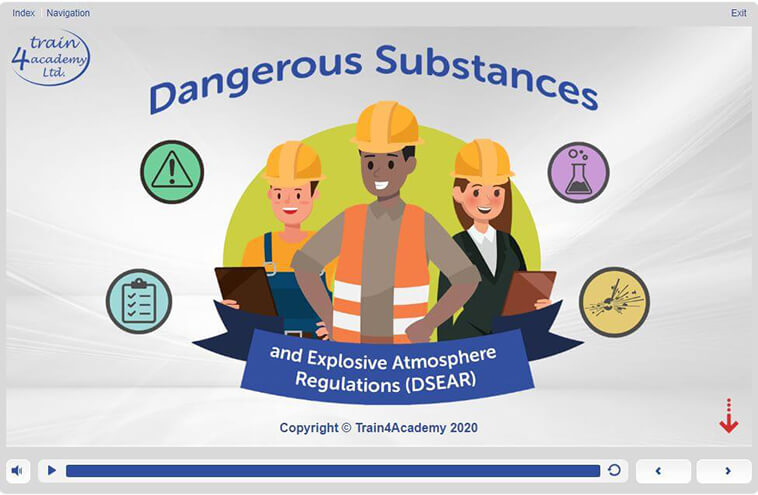The Importance of Understanding the DSEAR Regulations
09/03/2020
What is DSEAR?
DSEAR, the Dangerous Substances and Explosive Atmospheres Regulations (DSEAR) 2002 primary role is to set out minimum requirements in the workplace for the protection of workers from explosion and fire risks relating to dangerous substances and atmospheres. They are applicable to those workplaces that use, store or produce substances deemed as highly hazardous.
The DSEAR Regulations are long and complex, but at the heart of the regulations are simple requirements:
- Know the substances in the workplace that are possibly explosive if ignited
- Carry out a risk assessment to minimise the risks in the workplace
- Put in place measures to eliminate or minimise the risks
The failure of employers to conform with these Regulations can lead to work-related injuries or even death, which can lead to costly fines.
Why is DSEAR so important?
Some industries, such as coal mining, have a higher risk of explosions or fires starting, which can result in workers being injured or killed. Fires or explosions can be caused by natural gasses, coal dust and methane gas igniting, making mining a potentially very dangerous workplace.

Mines are not the only hazardous working environment, where explosions can occur. Because of scientific developments of substances, many other potentially explosive materials exist in some industries such as ethanol vapours, and gasses, for example, hydrogen.
However, many more are everyday substances like glues and solvents, but also seemingly innocuous substances such as egg whites, powdered milk, flour and rice can cause explosions under certain conditions.
The DSEAR regulations require the elimination, or reduction of, risk of fire and explosion associated with work activities. This begins at the start of establishing a business in any premises when careful planning must be carried out by experts, to establish the correct equipment, provision of services, workflow and storage to enable the production to proceed safely. This has applied to all workplaces since June 2015.

Employers Duties
DSEAR requires employers to:
- Analyse all the substances used in the workplace and decide if any pose hazards
- Put control measures in place to remove or control the risks presented by the hazards
- Consider any incident which could occur as a result of dangerous substances and put controls in place to remove or reduce the threat
- Consider any potential incident or accident and put plans in place to deal with those events
- Ensure all employees are aware of the potential risks and ensure they are given suitable training to protect them in the case of an incident
- Examine the associated procedures and work instructions, and ensure they are suitable
The starting point of this information-gathering exercise will be the DSEAR risk assessment, carried out by a team, consultant or individuals with knowledge and experience.

The DSEAR Risk Assessment
As with other risk assessments, it will follow five-steps as recommended by the Health and Safety Executive, which are:
- Step 1 - Identify the hazards
- Step 2 - Decide who may be harmed
- Step 3 - Evaluate the risks
- Step 4 - Record the findings
- Step 5 - Review the assessment regularly
As stated, the main risk where explosive atmospheres are present is the explosive atmosphere igniting and causing an explosion. Dealing with this threat is therefore mainly linked with minimising the risk of fire; or if a fire should break out reducing its intensity and preventing it spreading.

What is ATEX?
Equipment for potentially explosive atmospheres (ATEX) is an EU directive that covers equipment and systems intended for use in explosive environments, and which defines essential health and safety requirements and conformance to risk assessment procedures. DSEAR (2002) was introduced as the UK's version of the EU ATEX directive.
What are the DSEAR zones?
DSEAR zones (also known as area classification) is a method of identifying, analysing and classifying environments where explosive atmospheres could build up and become a source of ignition.
For example, after controls have been put in place, and the area is still deemed to be hazardous, then the area will be given a ZONE number, which are:
- Zone 0 - Where explosive atmospheres are present frequently
- Zone 1 - Where explosive atmospheres are present occasionally
- Zone 2 - Where explosive atmospheres are not likely to occur in normal operations, but if it does, will only persist for short periods
- Zone 20 - Where explosive dusts are present continually
- Zone 21 - Where explosive dusts are present occasionally
- Zone 22 - Where explosive dusts are not likely to occur and if it does, would only persist for a short time
Where explosive atmospheres may be present and cannot be prevented, warning signs must be displayed to alert workers. For example, this may be:
- The ATEX sign
- Designated smoking areas
- Wear antistatic footwear
- Portable, mobile or other equipment must be of an explosion-protected design
Although complex, the requirements of this regulation require:
- Prevent the explosive atmosphere forming
- Control the risks from explosive atmospheres
- Mitigate the effects of any explosion
Education and training play a critical part in this. Workers should know and understand the risks posed by explosive atmospheres and always follow the regulations and guidelines placed in the workplace.

If this includes a warning or alarm system, always act on it and:
- Know what to do if this system is activated
- Understand the evacuation procedure
Further Resources
DSEAR Training
- Work towards compliance with UK Health and Safety legislation
- Unlimited resits at no cost
- Instant certificate
